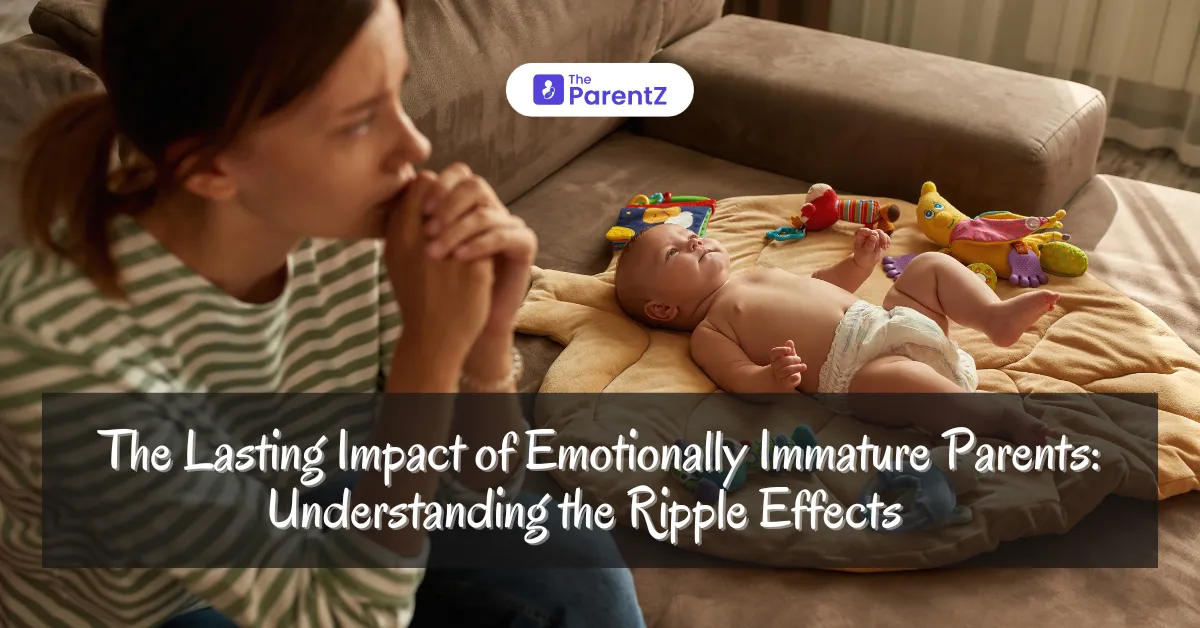Growing up with emotionally immature parents is like trying to get warm hugs from a stone wall. Picture this: Little Sarah comes home excited about getting an A on her test. Instead of celebration, her mother dismisses it with "That's what you're supposed to do anyway" and continues scrolling through her phone. Fast forward 20 years, and Sarah still feels a knot in her stomach before sharing any achievement, always wondering if it's "good enough."
The reality is that adult children of emotionally immature parents often carry invisible emotional baggage. They might look successful on the outside – great job, nice house, stable relationship – but inside, they're constantly battling self-doubt and seeking validation. Think of it like wearing a perfectly ironed shirt while carrying a heavy backpack filled with unmet childhood needs. Why do parents behave this way?
Understanding Emotional Immaturity in Parents
When parents lack emotional maturity, it creates a ripple effect that spans generations. Understanding why parents behave this way reveals complex layers of intergenerational trauma. Many emotionally immature parents grew up in households where their own emotional needs weren't met. For instance, maybe Grandma was cold and distant, so Mom never learned how to show warmth. Or Dad's family believed that "real men don't show emotions," so he raised his kids the same way. It's like trying to cook a gourmet meal without ever having tasted good food – these parents simply don't have the emotional tools in their toolkits.
The Psychological Impact on Adult Children
Adult children of emotionally immature parents often develop distinctive patterns in their personalities and relationships. The impact manifests in various ways:
- Relationship Patterns: These adults frequently struggle with intimate relationships. They might be drawn to emotionally unavailable partners, recreating familiar dynamics from childhood. Some become overly accommodating, fearing abandonment if they express their needs. For example, someone might stay in an unfulfilling relationship because they've learned that their emotional needs don't matter.
- Professional Life: In the workplace, these adults might be high achievers driven by an unconscious need to prove their worth. Others might struggle with imposter syndrome, constantly doubting their abilities despite evidence of success. The pattern of seeking validation through achievement often leads to burnout and career dissatisfaction.
- Mental Health Challenges: Anxiety, depression, and low self-esteem are common among adult children of emotionally immature parents. These individuals might struggle with persistent feelings of emptiness or inadequacy. Some develop perfectionist tendencies as a coping mechanism, while others battle chronic self-doubt.
Breaking the Pattern: Healing Strategies
For those recognizing these patterns in their lives, healing requires understanding and intentional action:
- Self-Awareness and Recognition: The first step involves recognizing the impact of emotional immaturity. Many adult children of emotionally immature parents don't realize their experiences were problematic until they encounter challenges in adult life. Understanding that their childhood experiences weren't normal or healthy is crucial for healing.
- Developing Emotional Intelligence: Learning to identify, express, and manage emotions becomes essential. This might involve therapy, reading self-help books, or joining support groups. The goal is to develop the emotional skills that weren't modeled during childhood.
- Setting Healthy Boundaries: Creating and maintaining boundaries with emotionally immature parents becomes crucial. This might mean limiting contact, avoiding certain topics, or learning to respond differently to manipulative behavior. For instance, when a parent attempts to guilt-trip, the adult child can choose not to engage rather than trying to explain or justify their choices.
For Parents: Recognizing and Changing Patterns
For parents reading this who recognize themselves, there's hope. The first step? Awareness. Notice if you:
- Dismiss your child's emotions ("Stop crying, it's not a big deal")
- Make everything about yourself ("You got promoted? Well, let me tell you about MY day")
- Avoid emotional conversations
- React defensively to your child's feelings.
- Use guilt or shame to control behavior.
The good news is that change is possible. Start small – maybe by asking your child about their feelings instead of jumping to solutions. Or by simply saying "I hear you" when they share something difficult. It's like learning a new language – awkward at first, but it gets easier with practice.
When Reconciliation Isn't Possible
For those dealing with emotionally immature parents who won't change, setting boundaries becomes crucial. You might need to accept that mom will never be the warm, nurturing parent you needed. It's okay to limit contact or to stop seeking their approval. Some adult children of emotionally immature parents find peace in building their own emotional support system through friends, therapy, or support groups.
Conclusion
The healing journey isn't easy, but understanding these patterns is the first step. If you recognize yourself in this article, remember: your feelings are valid, your needs matter, and it's never too late to learn healthy emotional patterns.
Most importantly, breaking this cycle takes courage. Many adult children of emotionally immature parents become incredible parents themselves because they consciously choose to do things differently. They turn their pain into growth, their awareness into change, and their experiences into lessons for the next generation.
Remember, while we can't change our past, we can always change our response to it. Whether you're a parent looking to do better or an adult child healing from emotional neglect, the first step is acknowledging the impact and choosing a different path forward.








Be the first one to comment on this story.